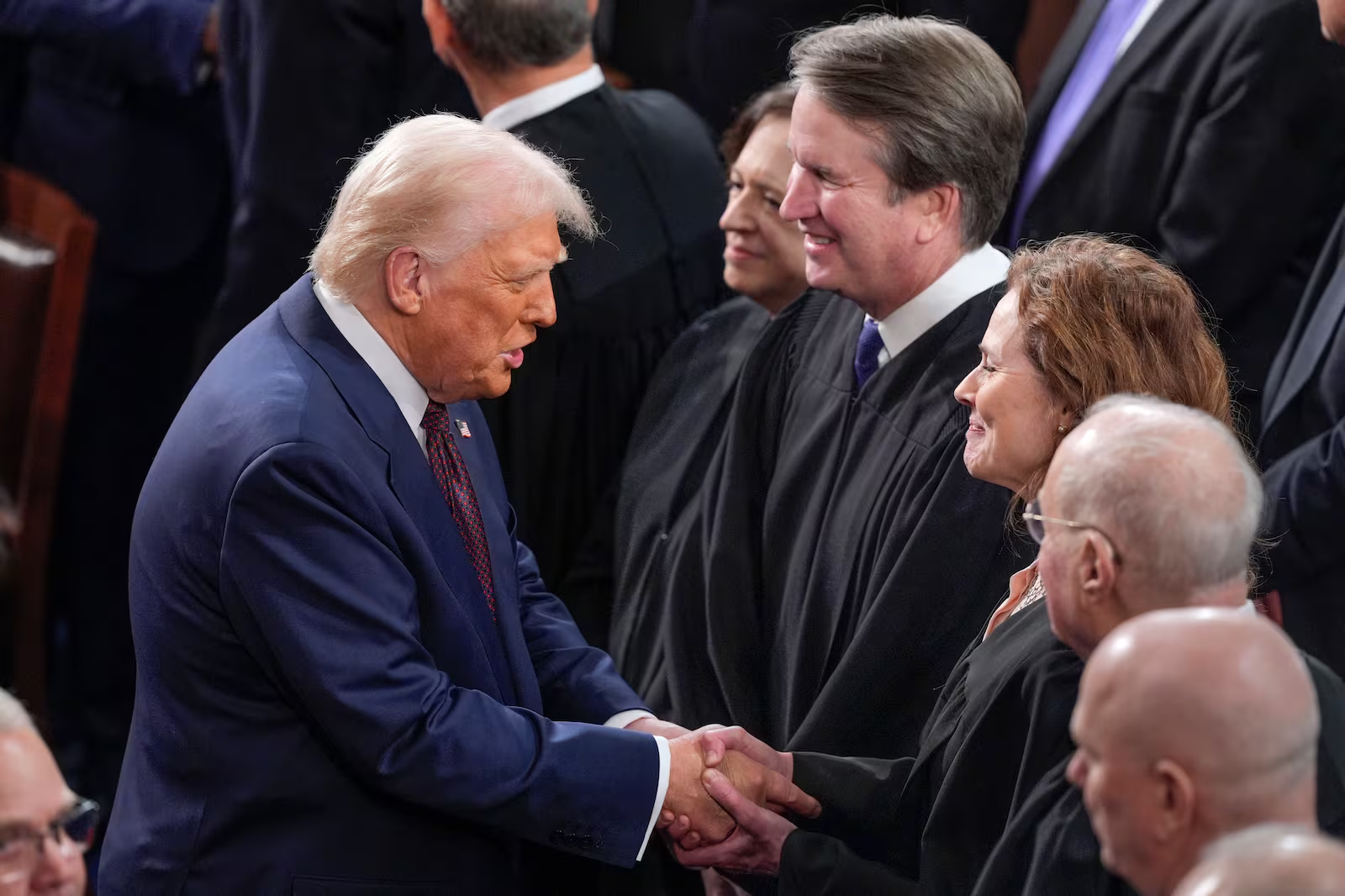
President Donald Trump, left, greets justices of the Supreme Court, from left, Elena Kagan, Brett Kavanaugh and Amy Coney Barrett, before addressing a joint session of Congress at the Capitol in Washington, March 4, 2025. | J. Scott Applewhite, Associated Press
Justice Amy Coney Barrett Addresses Faith and Judicial Decision-Making in CBS Interview
When asked by CBS journalist Nora O’Donnell whether her religious beliefs affect her decisions as a justice, Barrett pushed back strongly against the idea. She noted that this misconception was present during her confirmation hearings and wanted to set the record straight.
🎯 Barrett’s Key Argument
If anything, Barrett said, her faith helps her to “maintain my commitment not to let the faith” interfere with her decisions. She frames her religious beliefs as actually supporting judicial neutrality rather than compromising it.
- Judicial Oath: Barrett explained that, like every justice, she swore an oath to uphold the Constitution and the laws of the United States, which reflects the country’s pluralistic foundation.
- No State Religion: Unlike some European nations, she noted, the U.S. has no state religion and the First Amendment guarantees freedom of religion and speech.
- Religious Diversity: “We are a country where we have a range of different religions, no religion at all, and certainly different opinions,” Barrett said.
⚖️ Historical Context: The Confirmation Controversy
During her 2017 appeals court confirmation hearing, Barrett faced sharp questioning about whether her Catholic faith might influence her rulings.
In her book, Barrett writes extensively about the criticism she’s faced as a person of faith in her profession:
🔍 Barrett’s Counter-Argument
“Fortunately for the health of our country, people of faith are not the only Americans with firm convictions about right and wrong,” Barrett wrote. “Nonreligious judges also have deeply held moral commitments, which means that they too face conflicts between those commitments and the demands of the law.”
📺 Additional CBS Interview Highlights
- Supreme Court Defense: Barrett defended the Supreme Court as nonpolitical and rejected the idea that justices enable presidents or Congress
- Collegiality: She affirmed her respect for Justice Ketanji Brown Jackson despite sharp written exchanges, recalling hosting Jackson for a welcome dinner
- Roe v. Wade: On the Dobbs decision, Barrett said it returned abortion to the states, arguing that such questions belong to the democratic process, not the court
- Hypotheticals: She explained why she avoids weighing in on hypothetical scenarios outside of actual cases
Barrett’s comments come at a time when the Supreme Court faces scrutiny over its perceived political alignment and the role of personal beliefs in judicial decision-making. Her direct response aims to address long-standing questions about how religious faith intersects with constitutional interpretation.
The justice’s emphasis on her oath to the Constitution and America’s pluralistic foundations reflects ongoing debates about the separation of church and state, judicial neutrality, and the role of personal convictions in legal interpretation.
About The Author
Discover more from Faith & Freedom News - FFN
Subscribe to get the latest posts sent to your email.



